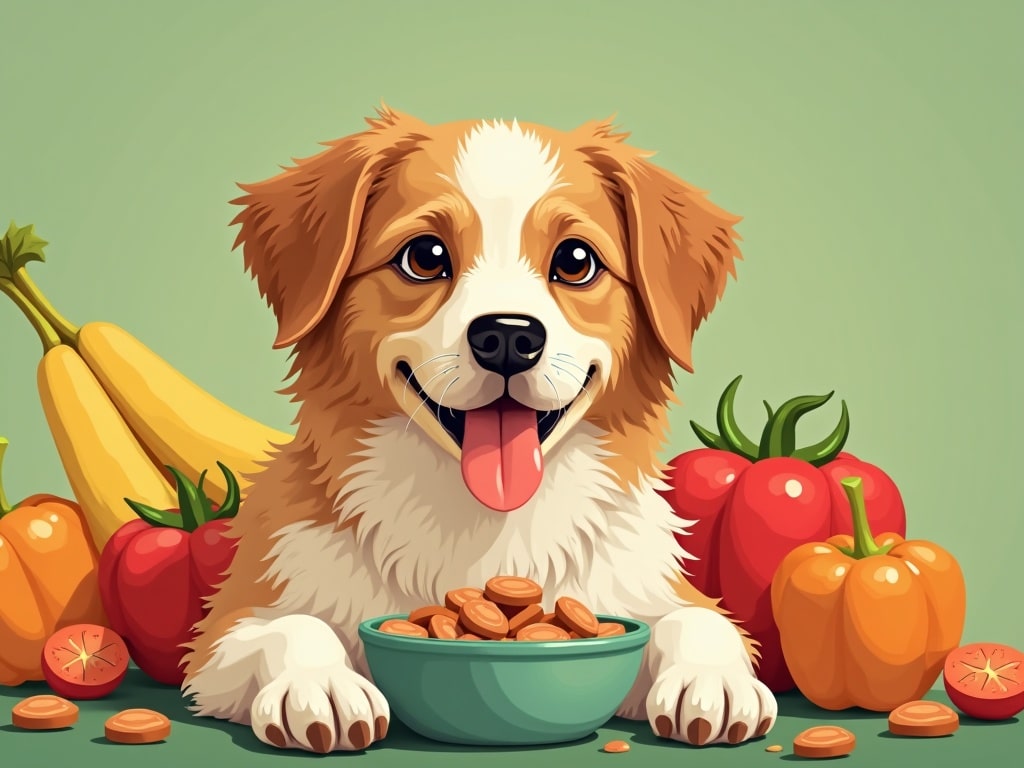Is Grain-Free Dog Food Actually Better? Unmasking the Truth Behind the Trend
Walk down any pet food aisle, and you'll be bombarded with options: kibble, wet food, raw diets, and, of course, grain-free formulas promising a plethora of benefits for your canine companion. But in a world saturated with marketing claims, it's hard to separate fact from fiction. The question lingers: is grain-free dog food *actuallybetter, or is it just a clever marketing ploy capitalizing on human dietary trends?
Decoding the Grain-Free Hype: What's Behind the Label?
Grain-free dog food, as the name suggests, excludes common grains like wheat, corn, and soy. These grains are often replaced with alternative carbohydrates such as potatoes, sweet potatoes, peas, lentils, and tapioca. The rise of grain-free diets mirrors the popularity of gluten-free diets in humans, fueled by the belief that grains are inherently unhealthy or allergenic. But does this translate to canine nutrition?
The Allergic Argument: Are Grains Really the Enemy?
One of the primary reasons owners switch to grain-free is the belief that their dog has a grain allergy. While food allergies do occur in dogs, they're less common than often perceived. The reality is that food allergies in dogs are most frequently caused by protein sources, such as beef, chicken, dairy, and eggs. Grains are actually relatively low on the allergy culprit list. Before assuming your dog has a grain allergy, consult with your veterinarian for proper allergy testing to identify the true allergen.
The Digestibility Dilemma: Can Dogs Even Digest Grains?
Another common misconception is that dogs can't properly digest grains. While it's true that dogs lack the high levels of amylase (the enzyme responsible for starch digestion) found in herbivores, they have evolved to digest cooked grains efficiently. Commercial dog food undergoes processing that makes grains highly digestible for dogs. Unless your dog has a diagnosed digestive issue, grains are typically a perfectly acceptable and nutritious part of their diet.
The Potential Downsides of Grain-Free Dog Food
While grain-free diets *canbe beneficial for some dogs, it's crucial to be aware of the potential drawbacks. A growing body of evidence suggests a link between grain-free diets and a specific type of heart disease called dilated cardiomyopathy (DCM) in dogs.
The DCM Connection: A Cause for Concern
In 2018, the FDA began investigating a potential link between grain-free dog foods and DCM. DCM is a condition where the heart muscle becomes weakened and enlarged, leading to heart failure. The investigation revealed that many of the reported DCM cases were in dogs eating grain-free diets, particularly those containing high levels of peas, lentils, and other legumes. While the exact mechanism is still being studied, it's believed that these ingredients may interfere with the absorption of taurine, an amino acid essential for heart health. It's important to note that the FDA investigation is ongoing, and more research is needed to fully understand the link between grain-free diets and DCM. However, the findings raise serious concerns, and many veterinarians now recommend caution when considering grain-free options. Before making any dietary changes, consult with your veterinarian to discuss the risks and benefits of grain-free dog food for your individual dog.
The Carbohydrate Overload: Are You Just Replacing One Problem with Another?
Grain-free doesn't necessarily mean low-carbohydrate. In fact, many grain-free formulas are actually *higherin carbohydrates than traditional grain-based diets. To compensate for the lack of grains, manufacturers often use alternative carbohydrate sources like potatoes and tapioca, which can have a higher glycemic index. This can lead to blood sugar spikes and may not be ideal for dogs with diabetes or those prone to weight gain. It is important to carefully review the ingredient list and nutritional information to understand the carbohydrate content of any dog food, regardless of whether it is grain-free.

When Grain-Free Might Be Beneficial
Despite the potential risks, there are situations where a grain-free diet might be appropriate, but these should always be determined in consultation with your veterinarian.
Diagnosed Grain Allergy: A Legitimate Reason
If your dog has been diagnosed with a *confirmedgrain allergy through veterinary testing, then a grain-free diet is obviously necessary. However, it's crucial to work with your veterinarian to identify the specific allergen (wheat, corn, soy, etc.) and choose a food that completely avoids it. Many limited ingredient diets can be helpful in these situations, as they contain a single protein source and a minimal number of other ingredients, reducing the risk of triggering an allergic reaction.
Specific Digestive Issues: Individual Needs
In rare cases, a dog might have a specific digestive sensitivity to grains, even if they don't have a full-blown allergy. If your dog experiences chronic digestive upset, such as diarrhea or vomiting, and your veterinarian suspects a grain intolerance, a grain-free trial might be warranted. However, it's essential to carefully monitor your dog's response and consult with your veterinarian throughout the process.
Navigating the Dog Food Aisle: Making Informed Choices
So, how do you cut through the noise and choose the best food for your furry friend? Here are some key factors to consider:
Consult Your Veterinarian: The Most Important Step
Before making any significant changes to your dog's diet, consult with your veterinarian. They can assess your dog's individual needs, considering their age, breed, health status, activity level, and any underlying health conditions. Your veterinarian can also help you interpret food labels and make informed decisions based on scientific evidence, rather than marketing hype. They might recommend specific allergy testing, blood work, or other diagnostic tests to identify potential dietary sensitivities or health concerns.
Read the Ingredient List: Beyond the Grain-Free Label
Don't just focus on the grain-free label. Carefully scrutinize the ingredient list to understand the overall composition of the food. Look for high-quality protein sources, healthy fats, and a balanced blend of vitamins and minerals. Be wary of foods that are loaded with excessive carbohydrates, fillers, or artificial additives.
Evaluate the Nutritional Adequacy Statement: Ensuring a Complete Diet
Look for a statement on the packaging that indicates the food meets the nutritional standards established by the Association of American Feed Control Officials (AAFCO). This statement ensures that the food provides a complete and balanced diet for your dog's life stage. Be sure to choose a food that is specifically formulated for puppies, adults, or seniors, as their nutritional needs differ.
Monitor Your Dog's Response: Observing Health and Well-being
After switching to a new food, carefully monitor your dog's response. Look for signs of improved digestion, such as firm stools and reduced gas. Assess their energy levels, coat condition, and overall well-being. If you notice any adverse reactions, such as vomiting, diarrhea, skin irritation, or lethargy, consult with your veterinarian immediately.
The Verdict: Grain-Free Isn't Necessarily Better – It Depends
In conclusion, the answer to the question is grain-free dog food actually better? is a resounding: it depends. Grain-free diets are not inherently superior to grain-inclusive diets for all dogs. In fact, for many dogs, grains can be a healthy and digestible source of carbohydrates. The decision to switch to a grain-free diet should be based on your dog's individual needs, in consultation with your veterinarian, and supported by scientific evidence, not marketing claims. Focus on providing your dog with a balanced, nutritious diet that meets their specific needs, regardless of whether it contains grains or not. Prioritize high-quality ingredients, avoid excessive carbohydrates and fillers, and always consult with your veterinarian to ensure your furry friend is getting the best possible nutrition for a long and healthy life.

